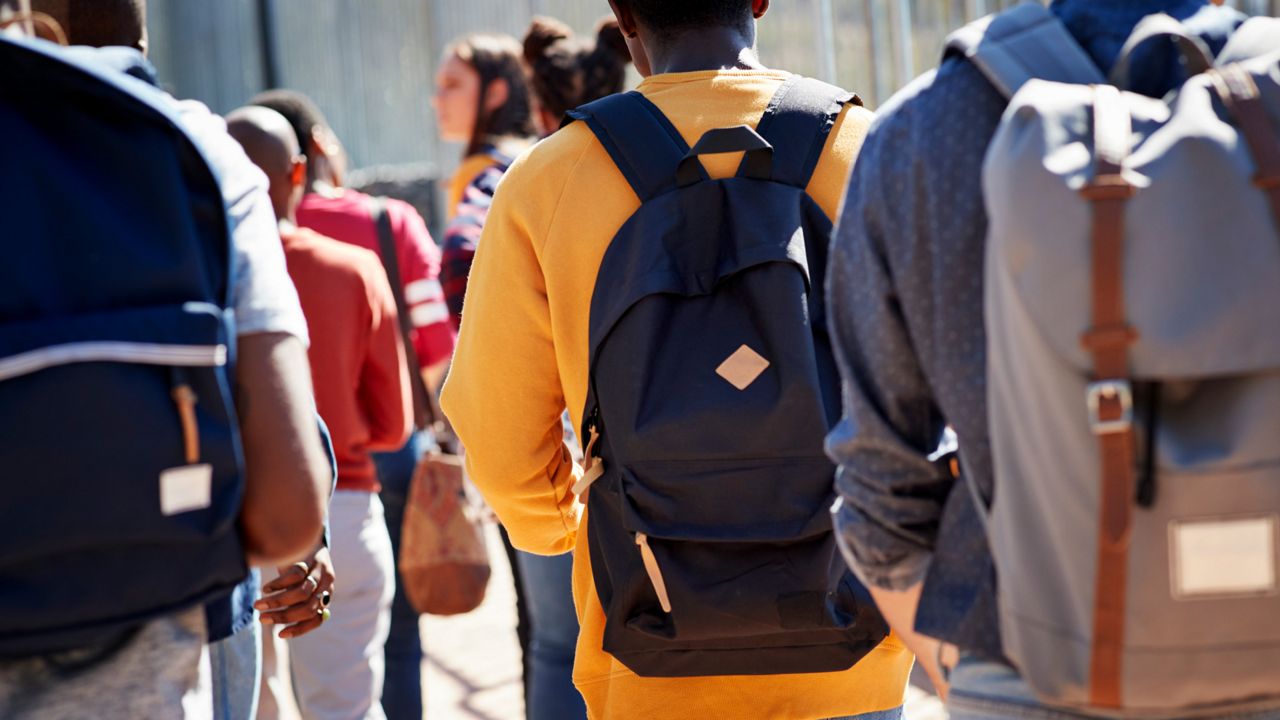LOS ANGELES — For all the headlines about the COVID-19 pandemic creating a national mental health emergency, one statistic stands out. Nearly 20% of high school students have seriously considered suicide and 9% have attempted to take their lives, according to the National Alliance on Mental Illness. Suicide is the second-leading cause of death among 15- to 24-year-old Americans.
“Unfortunately, many of our youth are at a crisis level every day in our nation,” Didi Hirsch Mental Health Services Board Chair Michael Wierwille said Thursday. Every day in the U.S., more than 5,400 people attempt to take their lives — “most of them by young people in grades 7 to 12.”
Wierwille was one of several executives with LA’s leading suicide prevention and crisis center on hand at LA’s Didi Hirsch Mental Health Services campus to announce its acquisition of the peer-to-peer teen counseling hotline, Teen Line. Combining forces, they said, will allow the two organizations to expand their support and services to a part of the population that needs it most.
Founded as a phone hotline in 1980 with the idea that teens are more likely to turn to their peers when they’re struggling, Teen Line has de-escalated about 1,000 suicidal teens in the past year alone. While the phone number has remained the same for 42 years (310-855-HOPE), Teen Line has evolved along with technology to include text, email, message boards, social media and other internet-based ways of communicating.
Each year, Teen Line trains 60 to 80 LA-based teens to be listeners for their peers on the hotline. Each listener is screened and interviewed before going through 65 hours of mandatory training and another six months of observing other Teen Line listeners before taking their first text or call.
“I put them up against some of the best of us licensed mental health professionals,” said Teen Line Chief Operating Officer Cheryl Eskin. A former Teen Line volunteer when she was 14, she is now a licensed marriage and family therapist. “They have the knowledge of what it’s like to be a teen in high school, living through a pandemic and school shootings.”
Besides helping suicidal teens, the organization supports teens struggling with issues like depression, loneliness, child abuse, anxiety and family problems.
“It has been incredible and so fulfilling to see a teen’s mood and tone change at the end of the call compared to the beginning of the call,” Teen Line volunteer, and high school student, Lily Kramon said of the two years she’s been a listener. “If they called crying, panicking or really depressed, even if it’s a small change in tone, a little bit of a laughter or a thank you, Teen Line has been able to reach so many teens in crisis. But there are still tons and tons of teens out there who need help and don’t know enough about us.”
Joining forces, Didi Hirsch plans to train more teens and other suicide prevention counselors with the goal of integrating services.
“There are times where already we use a teen as part of our class training, so our adult counselors on the line get a sense of feeling what a teen feels and how to talk to a teen, so we’ll be doing more of that,” said Didi Hirsch Mental Health Services Chief Executive Lyn Morris.
Acquiring Teen Line, Didi Hirsch also plans to expand its services into more diverse LA communities and to explore integrating Teen Line with the new 988 Suicide Prevention Lifeline system that launches this weekend.
Right now, crisis centers have to be accredited and trained members of the National Suicide Prevention Lifeline to take 988 calls. Didi Hirsch Mental Health Services is a part of Lifeline, along with 12 other crisis centers throughout California.
Morris said nearly half of the callers to the Didi Hirsch crisis line are teens and young adults.



